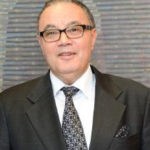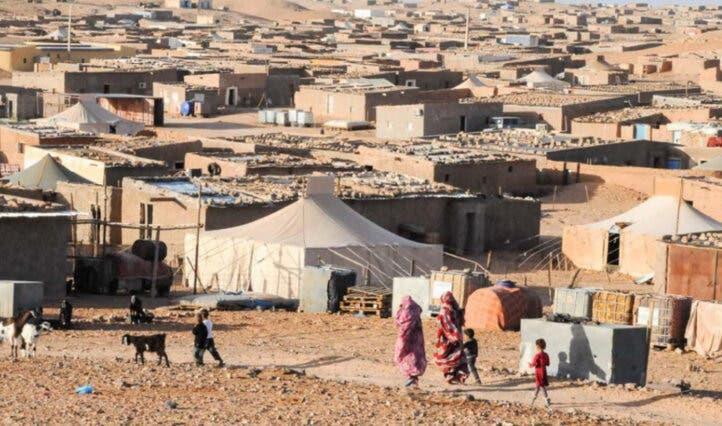In her op-ed (The Brussels Times, 6 July), MEP Dominique Bilde targets Algeria in its capacity as host country of Sahrawi refugees from Western Sahara.
Her article followed Algeria’s 58th independence anniversary on 5 July and cannot be left unanswered. The Embassy of Algeria in Brussels would like to formally address the allegations below and seizes this opportunity to provide the following clarifications.
Number of Sahrawi refugees in Algeria
Contrary to what MEP Bilde puts forward in relation to the fact that “the numbers of the refugees have been greatly overstated” and that “since 1977, Algeria and Polisario have refused to allow a census of those present in Tindouf, as has been requested by UNHCR”, the Embassy recalls that the United Nations High Commissioner for Refugees (UNHCR) published, in march 2018, a report entitled “Humanitarian Needs of Sahrawi Refugees in Algeria” in which the population in the Sahrawi refugee camps in Tindouf was estimated at 173 600, an increase of almost 40% compared to 2007 estimates. These figures, as of December 31, 2017, are even higher than the figures on which the UNHCR, the EU and the World Food Program were planning their humanitarian aid operations.
According to the UNHCR, the importance of its report lies in the fact that it represents the most comprehensive analysis ever carried out since 2007 on the subject, especially, since, its conclusions are the result of a multi-sectoral expert mission involving, in addition to the UNHCR, renowned organizations such as UNICEF, WFP and several international NGOs. As the report in question clearly specifies, the mission team had “full access” to the requested sites and information, which it has triangulated “independently”.
Within this framework, the World Food Program (WFP) adopted the new estimate of the number of Sahrawi refugees in its report of August 2018 on “the assessment of food security for Sahrawi refugees”. The former European Commissioner in charge of humanitarian aid and crisis management, Mr. Christos Stylianides, also took note of this upward update in the number of Sahrawi refugees, in a parliamentary response of July 2, 2019, referenced E-002122/2019 (ASW).
About the registration of Sahrawi refugees, this is one element among the package of the UN Peace Plan which must imperatively lead to the holding of the self-determination referendum and, as such, cannot be isolated outside tangible progress to be made by the United Nations toward a final solution to this issue of decolonization.
European Anti-Fraud Office (OLAF) Report
About the OLAF report and accusations reported by the MEP, it is worth recalling that these allegations have been repeatedly undermined by the highest European Commission Officials, starting with the former budget Commissioner, Kristalina Georgieva, who, during a debate before the Committee on Budgetary Control of the European Parliament, on March 24, 2015 indicated that “the accusations of embezzlement of European Union humanitarian aid to the Sahrawi refugee camps in Tindouf are unjust, particularly following the efforts and measures taken by the European Commission”.
Furthermore, EU officials, who never refer to the report mentioned by the MEP in her article, have always stressed that humanitarian aid delivery is subject to an extremely tight control system and regular audit reports, including at the refugee camp level.
In addition to that, in his speech at the Budgetary Control Committee of the European Parliament on July 14, 2015, the former Director General of Humanitarian Aid and Civil Protection (DG ECHO), Mr. Claus Sorensen, has formally denied these allegations by introducing monitoring and control measures taken by the Commission for the delivery of European aid. The operation has been going on since 2003 with the preparation of 36 audit reports, including 8 made on the spot in the Sahrawi camps,” Mr. Sorensen reported during the said hearing.
In the same vein, the current commissioner for Crisis Management, Mr. Januz Lenarcic confirmed during a debate with MEP’s at the Commission on Development on July 2nd 2020, that “the European commission has remained a consistent and reliable donor” to the sahrawi refugees camps. He also stated that the EU “has very strong safeguards in place” and “elaborated monitoring and control measures in place at a point where sometimes we faced accusations by some of our partners that its very difficult to work with us”. “I can assure you that our safeguards are robust enough to prevent any diversion of European humanitarian aid from people to whom it is intended,” he concluded.
The answers given by the highest EU officials have made it crystal clear that these allegations against Algeria and the Sahrawi refugees are unfounded. They represent sufficient elements to put an end to them, which only diverts attention away from the illegal occupation of Western Sahara and the legitimate right of the Sahrawi people for self determination.
Allegations of hosting a “terrorist group”
The Embassy strongly condemns the accusations by MEP Dominique Blide when it insinuates that Algeria is hosting a terrorist group.
Degrading for the Sahrawi refugees and offending to the country which is offering them protection, this unfair treatment of the question of Sahrawi refugees represents an irresponsible and thoughtless assertion made by its author. The Embassy reminds that the Polisario Front is a national liberation movement recognized as the sole and legitimate representative of the Saharawi people, in accordance with resolution of the UN AG n° 34/37 of November 21, 1979, and that the European Commission stated that “it does not challenge the capacity as representative of the Sahrawi people enjoyed by the Front Polisario which was recognised by the UN General Assembly.” (Item 44 of the judgment T-512/12 of December 10th, 2015).
Furthermore, it should be recalled that the Polisario Front and Morocco are identified as the two parties to this conflict, the solution of which lies in the implementation of the resolution 1514 (XV) of UN General Assembly on the right of peoples to self-determination, which is celebrating, this year, its 60th anniversary.


